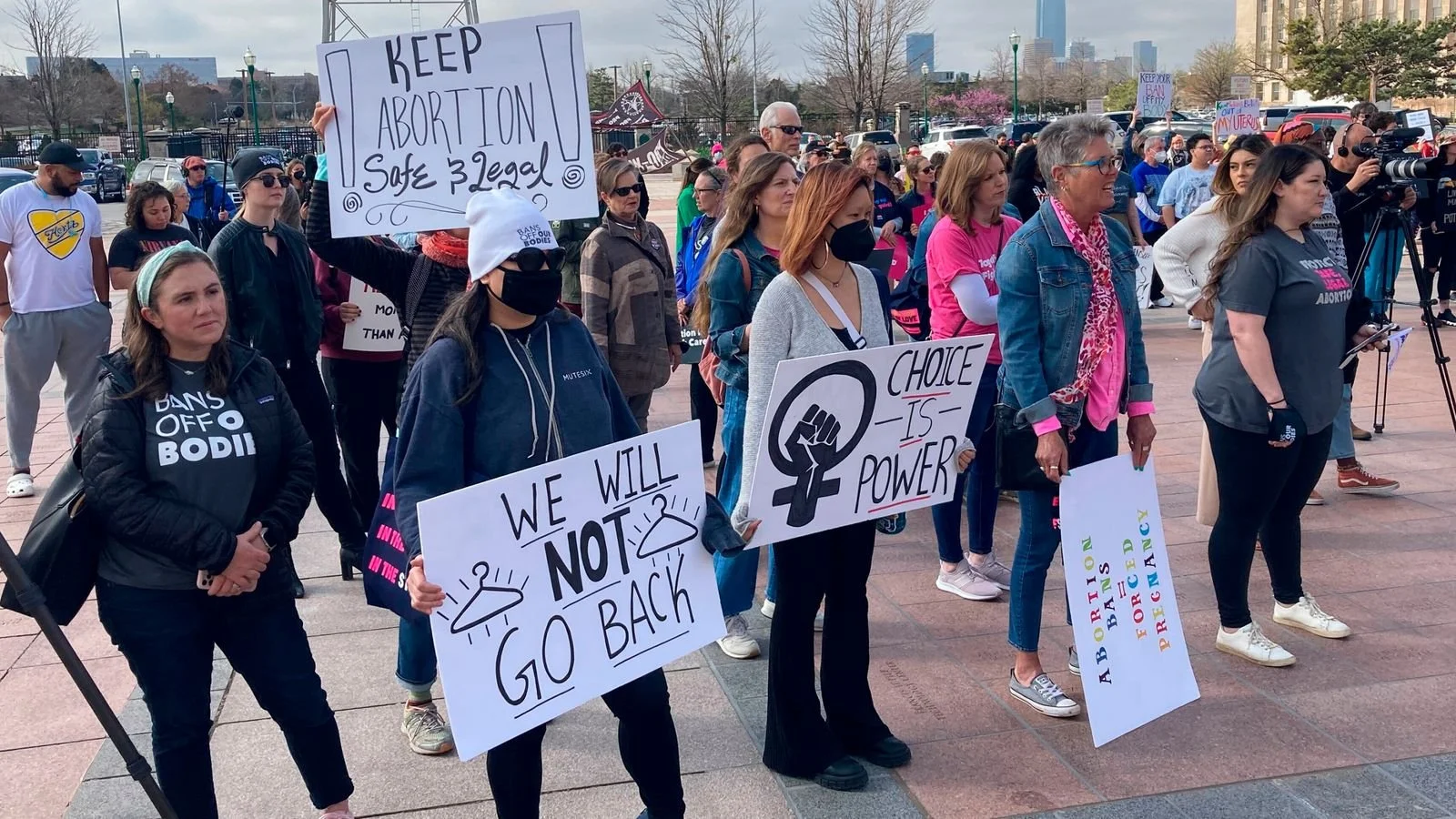OPINION: Oklahoma joins the list of states attacking abortion rights
“Abortion rights advocates gather outside the Oklahoma Capitol on April 5 in Oklahoma City to protest several anti-abortion bills being considered by the GOP-led Legislature.” Photo by Sean Murphy/AP.
Julianna Rittenberg is a freshman studying political science and an opinion writer for The New Political.
Please note that these views and opinions do not reflect those of The New Political.
On April 12, Oklahoma Gov. Kevin Stitt signed one of the most restrictive abortion laws the U.S. has ever seen. The law makes it a felony to perform an abortion in Oklahoma, punishable by ten years in prison and a $100,000 fine. The law has no exception for incest or rape but does have an exception if the mother’s life is in danger. The ban begins immediately after conception.
The law does not target women who receive abortions, just individuals who perform the procedure. While Oklahoma physicians are barred from providing abortion medication, the current legislation does not deter women from getting the drug online or out of state. A measure was introduced last year that would have banned the practice in Oklahoma, but it was blocked by the state Supreme Court.
Whether or not the state Supreme Court will block the new legislation is up in the air, but it is certainly possible.
The law is expected to commence 90 days after the Oklahoma legislature adjourns on May 27, 2022. This will follow the Supreme Court’s anticipated ruling on the Mississippi 15-week abortion ban, which will have a major impact on Oklahoma’s ability to move forward. If the court allows the Mississippi law to continue, that is effectively the end of Roe v. Wade in the U.S.
Stitt was quoted stating, “I promised Oklahomans that I would sign every pro-life bill that hits my desk, and that’s what we’re doing today. We want Oklahoma to be the most pro-life state in the country. We want to outlaw abortion in the state of Oklahoma.”
Oklahoma is far from the only state attacking abortion rights. In 2019, Ohio Gov. Mike DeWine signed the Heartbeat Bill. In 2021, Ohio lawmakers introduced another abortion bill that goes further. The bill, currently in committee, would allow any person to bring civil action against anyone who performs an abortion or knowingly aids or abets an abortion. Similar bills have been seen in Mississippi, Arkansas and other conservative states.
After an abortion ban was enacted in September 2021, 45% of Texas women looking to receive out of state abortion services turned to Oklahoma, according to a recent study from the University of Texas at Austin.
With a conservative-leaning Supreme Court, conservatives have a chance to bring down Roe v. Wade entirely. Will it work? That, we do not yet know. The Supreme Court so far has not struck down Roe completely but is edging the line. Hope is hanging on the Mississippi ban ruling.
Even though a ruling has not been made on the Oklahoma case, federal and state courts are striking down other strict abortion bans. Yet, conservatives keep pushing and these laws keep passing.
An end in sight feels impossible. Will abortion critics persist until the court upholds one of these bans? After nearly 50 years since the landmark decision, Roe v. Wade remains under a continuous attack.
Those who support abortion rights have said this before and I will say it again: banning abortion does not stop abortions. It stops safe abortions. Abortions have been happening for centuries and will continue to do so.
Rather than focusing on which conservative governor can sign the most restrictive abortion law, focus on the people. When people have access to more comprehensive sex education and affordable contraception instead of solely abstinence-only teachings, they are less likely to need abortion services.
These bills are restrictive and unhelpful. If the movement wants to label itself as pro-life, then take action for those living. Pass laws that will limit reasons to get abortions instead of attacking those who feel it is their only option. Create a society that is more inviting to have conversations about sex and more supportive of all mothers, regardless of background. Stop shaming women for their situation and help them do what they feel is best for themselves instead.
Focus on care, not shame.

